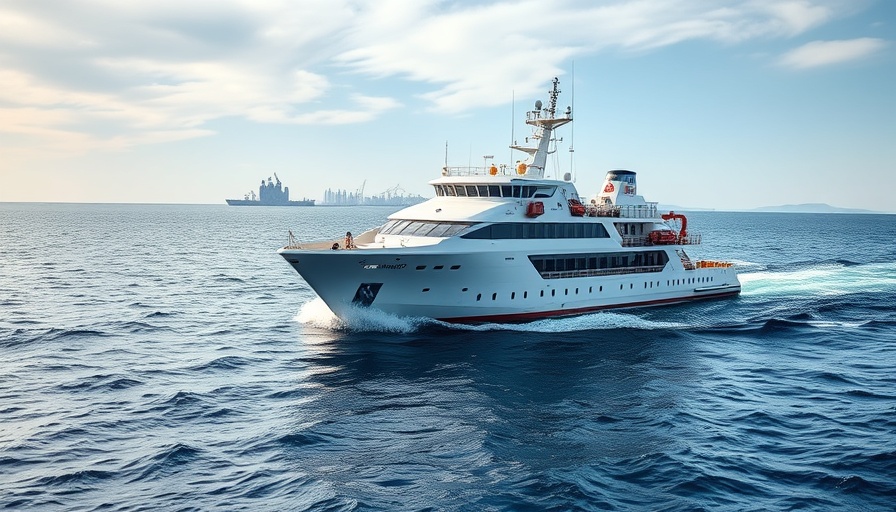
UK's Ambitious Offshore Support Vessel Initiative
The UK government has unveiled an exciting plan to enhance its maritime capabilities through the development of new Offshore Support Vessels (OSVs) under the MHC Block 2 initiative. This strategic move aims to bolster naval operations by ensuring that the Royal Navy has access to specialized support vessels necessary for modern defense missions. The new OSVs will be designed to support various tasks, from logistics to anti-submarine warfare, reflecting the evolving nature of maritime security.
Understanding the Importance of Offshore Support Vessels
OSVs play a crucial role in maritime operations, acting as the backbone of naval logistics. These vessels are designed to operate in challenging conditions, maintaining supply lines and providing critical support to operational fleets. As global tensions rise, especially in strategic waterways, the UK’s investment in state-of-the-art OSVs becomes more vital than ever. They are not just vessels; they symbolize the UK’s commitment to maintaining a robust naval presence.
A Closer Look at the MHC Block 2 Program
The MHC Block 2 program is set to replace older vessels with modern designs that incorporate advanced technology and sustainable practices. This initiative aligns with the UK’s broader strategy to enhance sustainability within naval operations. It focuses on the development of vessels that are not only effective in their primary roles but are also environmentally friendly, marking a significant shift in military operations towards greener technologies.
Potential Challenges and Considerations
While the plans for the MHC Block 2 program are promising, they are not without challenges. Budget constraints, technological integration, and timelines for delivery will require careful planning and execution. Moreover, as the UK seeks to modernize its fleet, it must also consider workforce training and the impact of automation in shipbuilding, ensuring that skilled labor is maintained even as technologies evolve.
Future Trends in Naval Support
Looking ahead, the development of Offshore Support Vessels is expected to set a new standard in naval operations worldwide. Future designs will likely incorporate even more sophisticated technologies such as autonomous navigation systems and modular designs that allow for flexibility in various mission scenarios. Anticipating these trends can help stakeholders in the naval sector position themselves strategically for the future.
Conclusion: A Stronger Navy for Tomorrow
The UK’s plans for Offshore Support Vessels under the MHC Block 2 initiative reflect its awareness of the changing landscape of maritime threats and the technological innovations needed to combat them. By investing in modern vessels designed for sustainability and efficiency, the UK is taking significant steps toward a stronger, more capable naval force. As this program evolves, it might just redefine what it means to maintain global maritime security.
 Add Row
Add Row  Add
Add 




 Add Row
Add Row  Add
Add 

Write A Comment